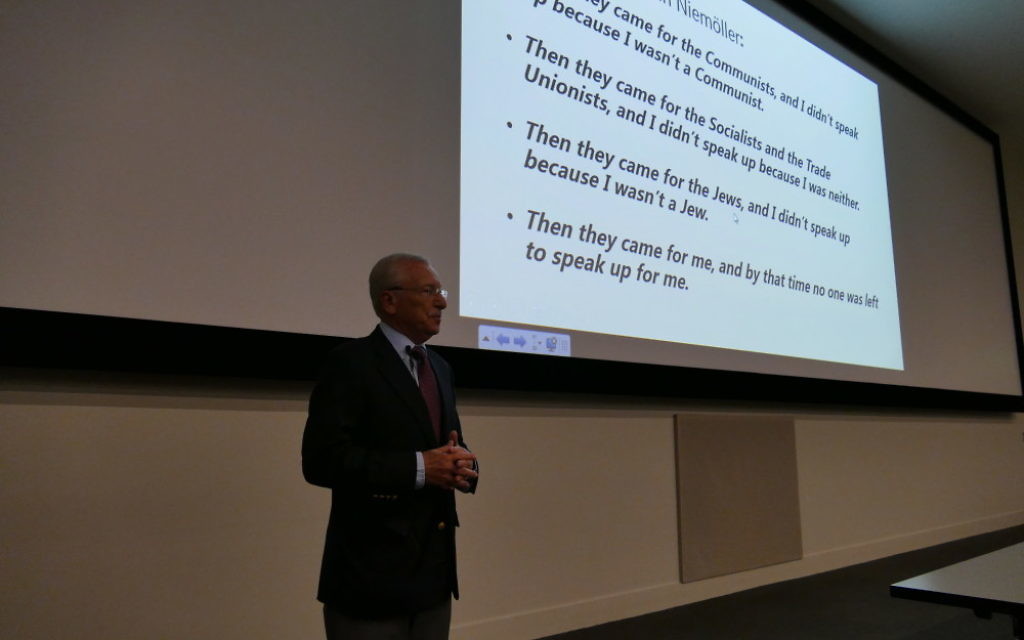Survivor Takes Story to Tech Students
Above: Robert Ratonyi fields questions from college students.
Holocaust survivor Robert Ratonyi was just 6 years old when Nazis rounded up the Jews in his hometown of Budapest on Oct. 10, 1944. He was soon separated from his parents, who were sent to different Austrian concentration camps.
Although he would be reunited with his mother in the summer of 1945, he would never again see his father, who perished at the camp.
Get The AJT Newsletter by email and never miss our top stories Free Sign Up

Ratonyi, who turned 78 in January, told his story of survival to a group of students at Georgia Tech on Wednesday, March 2, as part of a program organized by campus Hillel Director Veronica Beskin.
Beskin, who took over the director position for Georgia Tech and Georgia State in July, was looking to present an impactful program in observance of Yom HaShoah (Holocaust Remembrance Day), which is May 4 and 5. But the timing of the holiday conflicts with finals week at Georgia Tech, so Beskin and event chair Rivka Jacobs, in partnership with the Breman Jewish Heritage Museum, scheduled Ratonyi to speak two months early.
“Yom HaShoah is late this year,” Beskin said, “so this was the best time to have a speaker come. It allows us to have more students attend outside of the Hillel.”
Ratonyi’s moving account of his journey through war-torn Budapest in the winter and spring of 1945 was heard by around 150 Georgia Tech students and was followed by an extended question-and-answer session.
The survivor told students how he stayed alive in Budapest’s Jewish ghetto by eating one can of soup per day and living with his grandparents and cousins. By the time the ghetto was liberated by the Soviet army in 1945, he was too weak to even look out the window to see the soldiers come in through the gates.
Ratonyi said his life after the war included fighting in the Hungarian uprising of 1956 and an eventual journey to Canada and then the United States. He graduated from the Massachusetts Institute of Technology with a degree in mechanical engineering in 1964.
“It’s important for me to tell my story,” Ratonyi said. “Twenty years from now there will be articles written saying the Holocaust didn’t exist, but you will have heard from someone who was there.”
Photos by David R. Cohen






comments